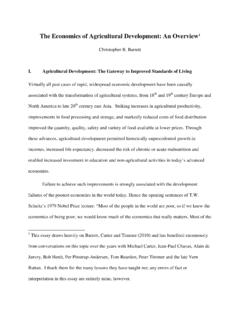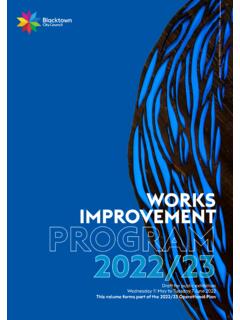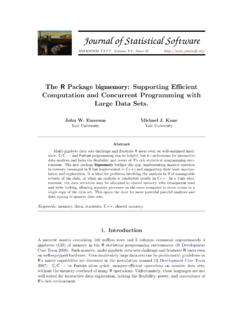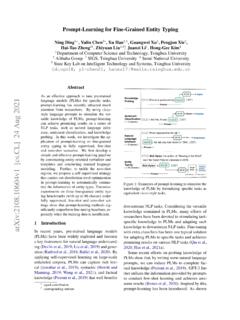Transcription of Development Economics: An Overview - Christopher B. Barrett
1 Forthcoming in Barrett , ed., Development Economics: Critical Concepts in Development Studies 4 volumes (London: Routledge, 2007) 1 Development Economics: An Overview Christopher B. Barrett I. Understanding Human Well being: An Integrative Perspective When Routledge invited me to assemble a four volume collection to represent the best of Development economics, I knew it would be a stimulating but daunting challenge. A first cut at enumerating the essential readings in the field yielded a monstrous tome of nearly 5000 pages, more than three times what my editor would permit.
2 The wide range of excellent work by so many talented scholars immediately necessitated hard thematic choices in order to establish appropriate, if inherently arbitrary, boundaries for this project. Much important work would need to be left out in order to tell the story of Development economics compactly and coherently. With its focus on understanding how resource allocation, human behavior, institutional arrangements and private and public policy jointly influence the evolution of the human condition, Development economics is arguably the original and most fundamental field within the discipline of economics, at least as it relates to the social sciences and humanities more broadly.
3 As the opening sentence of Schultz s 1979 Nobel prize lecture declared, Most of the people in the world are poor, so if we knew the economics of being poor, we would know much of the economics that really matters. (Schultz 1980, ) Ultimately, virtually all important work in Development economics focuses on improving our knowledge of being or becoming poor and, more hopefully, about the processes by which people avoid or escape poverty and enjoy improved standards of living. Such work ranges from understanding the decision making processes, contractual and extra contractual arrangements within and among households and firms that lead to inefficiency, exclusion, and/or vulnerability, to identifying what determines the emergence and diffusion of improved production technologies and who gains from new trading opportunities, to establishing the welfare costs associated with different sectoral or macro policies, and the nature of national scale economic growth and its relationship to inequality, trade and sociopolitical institutions.
4 In this collection, I can therefore really only scratch the surface. My objective in this collection and especially in this introductory essay is therefore not to be comprehensive, nor to go deep into the details of the many fascinating threads that jointly make up the rich fabric of Development economics. Rather, the aim is to introduce the broad themes of Development economics, to familiarize the reader with central issues and seminal Forthcoming in Barrett , ed., Development Economics: Critical Concepts in Development Studies 4 volumes (London: Routledge, 2007) 2findings that have guided the field s evolution of the past half century or so, and to flag a number of key additional readings for those who wish to plumb particular sub topics in greater depth.
5 So what are the core themes of the field? Development economics research ultimately describes and explores the causal reasons why some countries, communities and people are rich and others are poor. What structural factors distinguish the experience of those who enjoy high and/or rising standards of living from those enduring low and/or stagnant conditions? Of greatest practical importance, what can be done to reinforce the experience of the former subpopulation and to relieve the suffering of the latter? Thus frontier research in the field has always taken place at multiple scales of analysis, from the micro realm of individuals, households, and firms, through the meso range of communities, groups, networks, regions and villages, to the macro level of nation states, continents and the globe.
6 The natural integration of these scale specific literatures is too often overlooked as we scholars specialize in our own niche. Yet the complementarity is there, just beneath the surface of the journals and monographs. Hence the two core themes around which this volume is organized: (i) understanding patterns of human well being and (ii) an integrative perspective that bridges micro economic, macro economic and the oft ignored middle level or meso economic scales of analysis. The papers selected for inclusion all ultimately speak to the first of these themes, sometimes quite directly, other times more indirectly by, for example, tackling critical intermediate topics such as inter sectoral linkages or financial services.
7 The second theme emerges more from the allocation of space across topics, especially the dedication of one volume each to micro , meso and macro level phenomena and the explicit incorporation of papers that address similar issues at different scales of analysis. The main issue that re emerges at each level of analysis concerns the dynamics of human well being, often reflected in growth in income, wealth or other welfare metrics, and the possibility of multiple dynamic equilibria, including a low level equilibrium more popularly known as a poverty trap . Such issues can be studied at multiple levels and common themes and interrelationships appear routinely, as discussed Rapid economic growth is, in historical terms, a recent phenomenon confined to the past three hundred years for less than one quarter of the world s population.
8 Growing and seemingly persistent gaps in prosperity between rich and poor people within and between countries contributes to sociopolitical tensions, affects patterns of human pressure on the natural environment, and generally touches all facets of human 1 See Barrett and Swallow (2006) for a more detailed conceptual discussion of the interrelationship of poverty traps across micro , meso and macro scales of analysis. Forthcoming in Barrett , ed., Development Economics: Critical Concepts in Development Studies 4 volumes (London: Routledge, 2007) 3existence.
9 Understanding the process of economic Development is thus central to most research in economics and the social sciences more broadly. Development economics nonetheless emerged as a distinct field of analytical, empirical and institutional research only in the past half century or so, with especially rapid progress in the past generation. An ideational revolution occurred in the social sciences in the 1970s. In economics, this revolution was waged by monetarists and by public choice and rational expectations theorists against the Keynesian paradigm that had dominated the post World War II world.
10 The result was a general reaction against government interventionism and in favor of free markets and minimalist variants of neoclassical economic thought. As a consequence, Development problems came to be seen largely as resulting from an excess of government interference in the economy. By the 1980s, Development was very much out of favor as a subdiscipline within economics. Throughout the latter 1980s and early 1990s, many concurred with Lal s (1983) assessment that Development economics constitutes little more than a futile quest for queer exceptions to the rules of mainstream economics, and that the fundamental fallacy of such pursuits was belied by the catastrophic failure of state planned economies.







